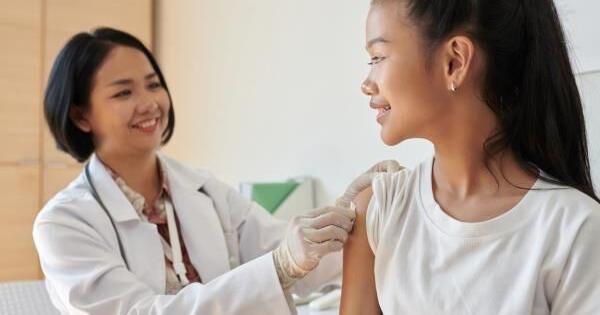
As the back-to-school season approaches, children and teenagers aged 7 to 18 are engaged in the familiar ritual of preparing for a new academic year. This preparation frequently involves coordinating various essentials, from school supplies to clothing. However, one crucial aspect that often gets overlooked is scheduling an appointment with a pediatrician or family doctor to ensure that immunizations are current.
Immunizations play a vital role in safeguarding the health of young individuals, as they enhance the immune system’s ability to recognize and combat various viruses that are prevalent in school settings. These viruses can lead to serious health consequences, including infertility, muscle paralysis, neurological disorders, and even increased risks of certain cancers. According to health experts, vaccination not only protects the vaccinated individual but also contributes to the broader public health by reducing the likelihood of outbreaks.
The onset of a new school year often coincides with an increase in the transmission of infectious diseases. Conditions such as influenza, pertussis, and other vaccine-preventable diseases can spread rapidly in crowded environments. Health officials emphasize that timely vaccinations can significantly diminish the chances of contracting these illnesses, thereby safeguarding not just individual health but also the collective well-being of school communities.
Parents are advised to consult the vaccination schedules provided by health authorities, such as the Centers for Disease Control and Prevention (CDC), to ensure that their children receive all recommended immunizations. Vaccination is particularly important for teenagers, who may be transitioning to high school or college, where they will encounter more diverse and larger groups of people. Effective communication with healthcare providers can also help clarify which vaccines are necessary based on an individual’s health history and local outbreaks.
In addition to immunizations, health professionals encourage families to consider other preventive measures as part of their back-to-school routine. This includes practicing good hygiene, such as regular handwashing, and maintaining a healthy lifestyle through nutritious diets and regular physical activity. By being proactive about health, families can ensure that the transition back to school is not only smooth but also conducive to the well-being of students as they face a new academic year.
The importance of immunizations cannot be overstated in the context of public health. As children and adolescents return to academic settings, aligning their vaccination status with the latest health guidelines can empower them to tackle their educational challenges with confidence.


